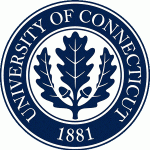Graduate students working on immigration issues with Professor Delia Furtado have been traveling quite a bit in the past few months. Samantha Minieri was in Chicago presenting her paper, “Norms and Parental Leave: Do Home Country Policies Affect Immigrants,” at the Annual Meeting of the Population Association of America (PAA).
Tao Song has presented his job market paper, “Honey, Robots Shrunk My Wage! Native-Immigrant Wage Gaps and Skill Biased Technological Change,” at the Centre for European Economic Research (ZEW)’s Workshop on Spatial Dimensions of the Labour Market in Mannheim, Germany; the Society of Labor Economists’ annual meeting in Raleigh, NC; and the Western Economics Association International (WEAI) Annual meeting in San Diego, CA.
Also at the Western meetings, Tian Lou presented her paper, “Ethnic Segregation, Education, and Immigrants’ Labor Market Outcomes,” and Haiyang Kong presented his paper, “What is the Impact of Industrial Structure on Immigrants’ English Language Fluency?”



